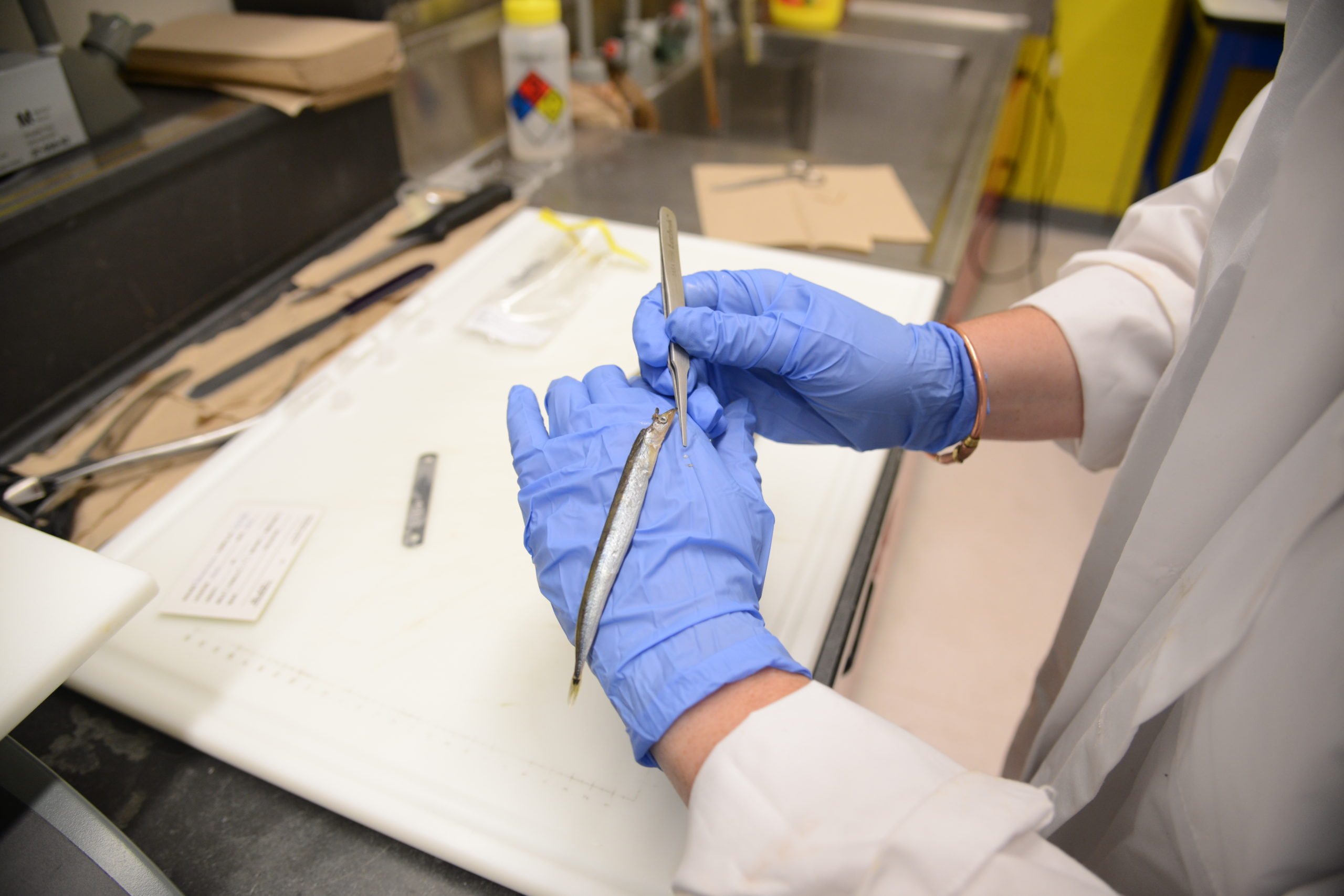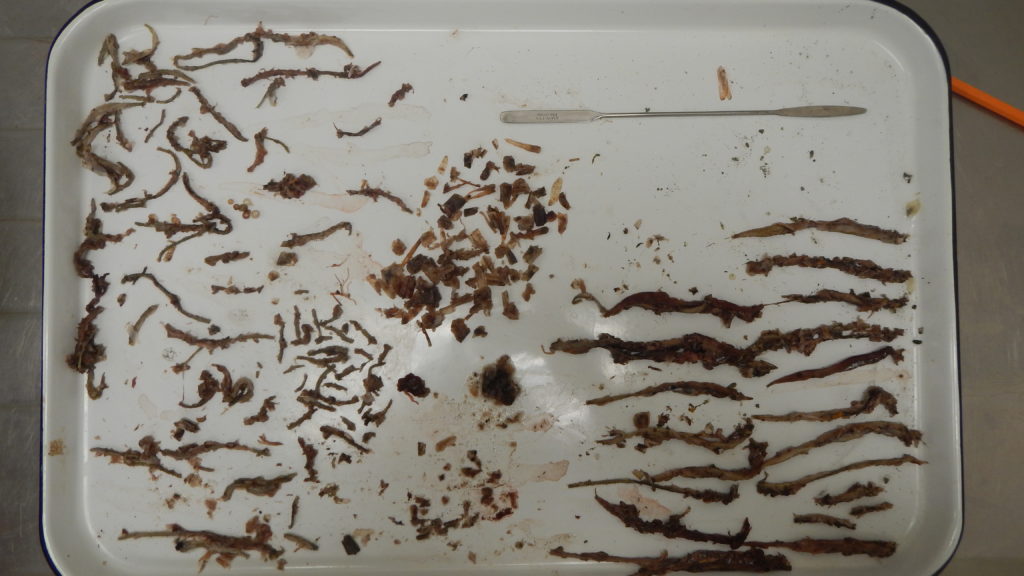Researchers gain rare insight from unusually abundant beluga harvest

By Staff Writer
Local Inuit hunters in the hamlet of Ulukhaktok, Northwest Territitories, seldom have the opportunity to hunt beluga, with usually one whale hunted every few years, but the summer of 2014 gave a bounty of over 30 whales. Beluga researchers took advantage of this rare opportunity, and working with local hunters, were able to gain new insights on beluga feeding and diet.
“It was very exciting and very uncommon to have so many whales so close to town, in shallow water,” said Kathleen Snow, a research technician from the Department of Fisheries and Oceans that interviewed local hunters.
The beluga population in the Western Arctic is estimated to be around 40,000, and fewer than 100 beluga are hunted in a year, so the bountiful harvest didn’t impose any conservation risks. “There are strong wildlife management practices that are in place in each of the communities,” said Snow. “It was actually the opposite of a concern, there was excitement and joy that they actually came in close enough to be harvested by communities that didn’t normally have a chance.”
The researchers distributed surveys among local hunters to gain local, traditional knowledge on beluga feeding patterns. Then they took beluga samples and analyzed the whale’s stomach contents.
Surprisingly, they found that the whale stomachs were full of sand lance—doubly unusual because most previous whale samples were found to be empty, and the preferred prey item was thought to be Arctic cod.
“Were we wrong or has the system changed?” asked Lisa Loseto, the lead author of the study published in Arctic Science. Loseto said the study demonstrates that beluga are adaptable in their feeding habits, and that declining arctic cod populations may cause a shift in their diet. One of the big questions that remains is whether or not a diet consisting largely of sand lance will be enough to sustain the beluga population in the future.
“We captured a rare event, but maybe soon to be a normal event,” said Loseto.




